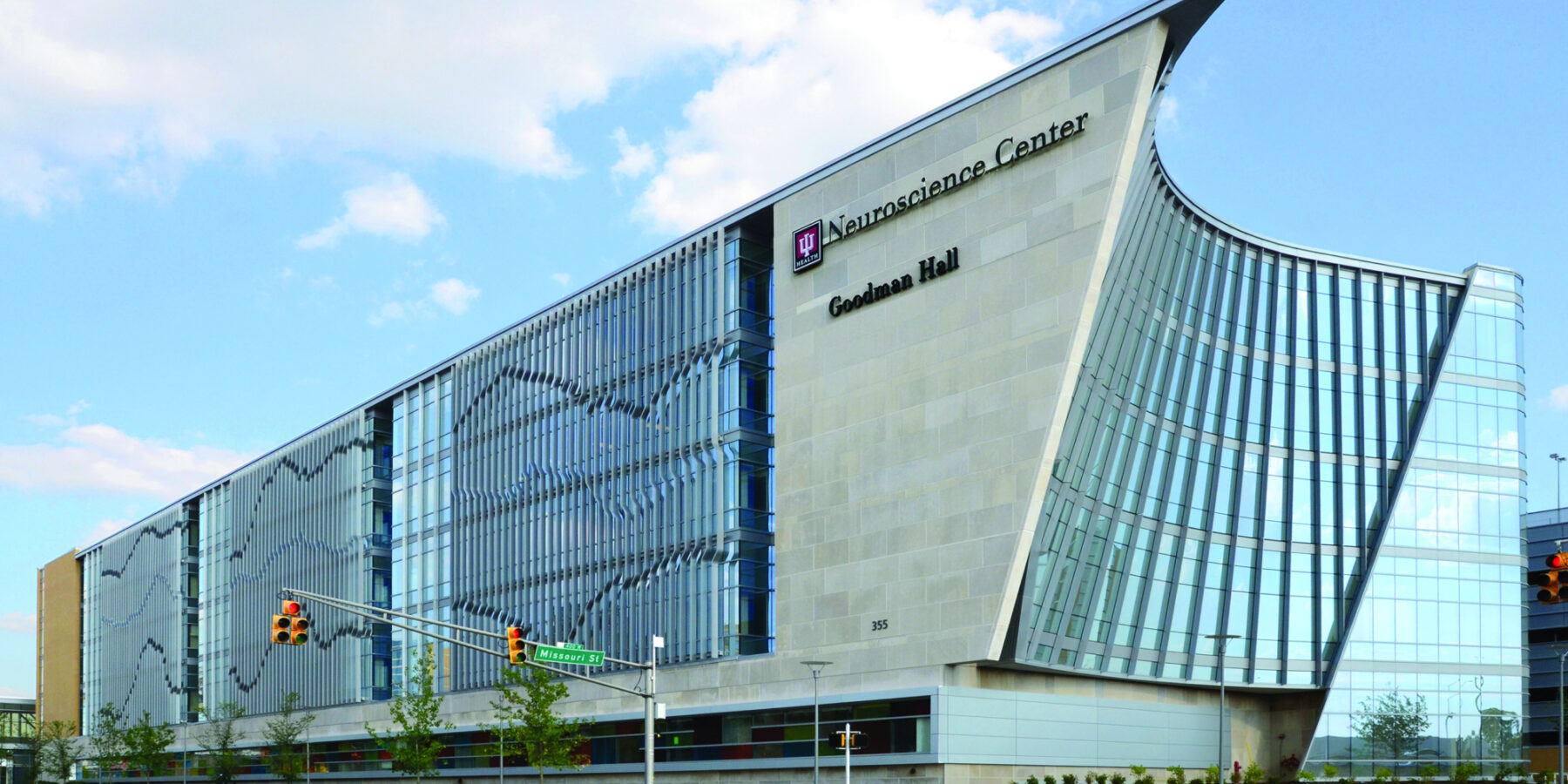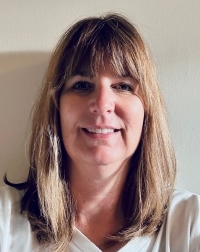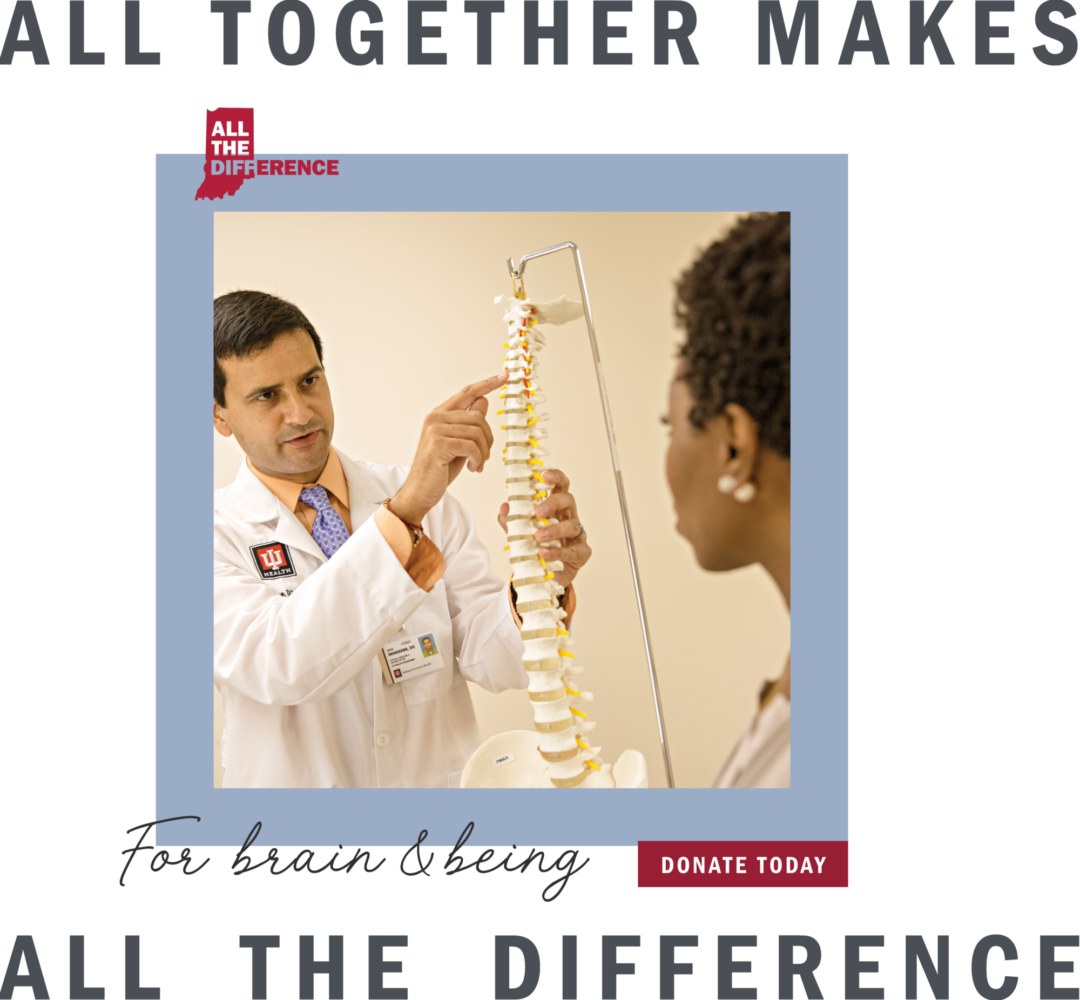

Philanthropy helps ALS patients navigate multidisciplinary care
“I’m the point person for our patients,” said IU Health ALS Clinic Coordinator Angi Micheels. “If they need anything between visits, they call my direct number. It’s been valuable for our ALS patients to have that access, rather than go through triage. When you have one person to contact, it can provide a sense of relief.”

Trained as a physical therapist, Micheels helps patients, care teams and loved ones navigate care at IU Health’s Neuroscience Center in downtown Indianapolis. She said her role within the multidisciplinary clinic is especially valuable for those diagnosed with neurological disorders.
“A lot of neuroscience diagnoses are better managed by a multidisciplinary clinic,” Micheels said. “In other settings, nurses and medical assistants are overwhelmed by the amount of follow-up a patient requires. In the multidisciplinary clinic, I can take on much of that and free up nurses and caregivers to handle everything else.”
Micheels said her patients are the most rewarding part of the job.
“ALS has been called the ‘nice person disease,’” she said. “These patients are so nice, and they’re so appreciative of anything you can do for them.”
She recalled one patient’s spouse who sent her a handwritten thank-you note.
“ALS is just so different than other diagnoses,” Micheels said. “It meant so much to her that I was always there to answer calls and follow up on everything she needed. She appreciated that she could count on me to play that role.”
The IU Health Neuroscience Center clinic operates under guidelines set by the National ALS Association. It’s a certified Center of Excellence. Micheels’ team typically sees ALS patients every three months, depending on disease progression. She hopes more clinics adopt the approach IU Health uses, having seen its benefits firsthand.
“A lot of these patients have to see different specialists,” she said. “They might spend time in physical therapy, see a speech therapist and make a separate appointment to see a respiratory therapist. Our clinic is more of a one-stop shop. Wouldn’t it be nice if more medicine operated that way? Our patients aren’t forced to set aside a half-day for every appointment.”
Roles like Micheels’ are made possible through philanthropic support via IU Health Foundation. She said additional donor support could help expand care beyond the hospital walls.
“Home care is getting tougher and tougher to manage,” Micheels said. “As much as we can do in the clinic, I’d love to fast-track equipment loans for patients and their families at home.”
Make All The Difference
To support ALS patients and their caregivers as they navigate complex care, make a gift to the Neuroscience General Fund today.
